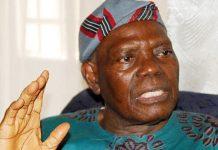By Joy Onuorah
Nigeria’s education system is in for a shake-up as the National Information Technology Development Agency (NITDA) partners with the Federal Ministry of Education (FME) to overhaul the nation’s digital literacy curriculum.
This joint effort aims to equip students with the skills they need to survive and thrive in the ever-changing digital economy.
During the 68th Meeting of the National Council on Education (NCE), NITDA’s Director General, Kashifu Inuwa, didn’t mince words.
He declared that Nigeria’s digital future cannot be achieved without a total revamp of its education system.
“We can’t hit our goals without the Ministry of Education,” Inuwa said bluntly. This collaboration is essential for Nigeria’s digital transformation, aligning perfectly with the government’s goal of preparing citizens for a high-tech world.
Inuwa stressed that digital literacy isn’t just a buzzword; it’s the key to unlocking Nigeria’s potential.
“Technology improves lives, but it’s people who drive technology forward,” he emphasized. NITDA’s mission is clear: to move beyond simply consuming technology and toward creating it.
That’s why their *Digital Literacy Framework (DLF)* is being integrated into the national curriculum, ensuring students are equipped to meet the demands of the 21st-century workforce.
By 2025, NITDA is aiming for 70% digital literacy in Nigeria, ramping up to an ambitious 95% by 2030.
And they’re not just talking—NITDA has laid out a solid plan through its Strategic Roadmap and Action Plan (SRAP 2.0). This plan focuses on embedding digital skills into every level of education, creating a tech-savvy generation capable of driving Nigeria’s digital economy forward.
The stakes couldn’t be higher. Nigeria must abandon outdated education models and embrace digital transformation, or risk being left behind on the global stage.
Inuwa was clear: the days of treating technology as an afterthought are over. The new curriculum will reflect the realities of today’s digital world, preparing students to be creators and innovators, not just users.
In addition to revamping education, NITDA has pledged to scale up digital training for all citizens.
This includes fostering digital fluency, ensuring Nigerians can navigate and master the tools and services that are becoming essential in modern life.
The government’s goal according to Inuwa is to create a workforce that can build and expand Nigeria’s digital capabilities, not just consume what others create.
Inuwa also spoke of the importance of collaborative relationships with educational institutions, private sector players, and international partners.
These collaborations will open doors to new markets and provide opportunities for capacity building and knowledge exchange, propelling Nigeria’s digital landscape to new heights.
As Nigeria moves forward, this partnership between NITDA and the Ministry of Education isn’t just a policy update—it’s a fundamental shift.
Nigeria is on the brink of a digital revolution. But the success of this revolution depends on whether the country is ready to let go of its old ways and fully embrace the future.


























